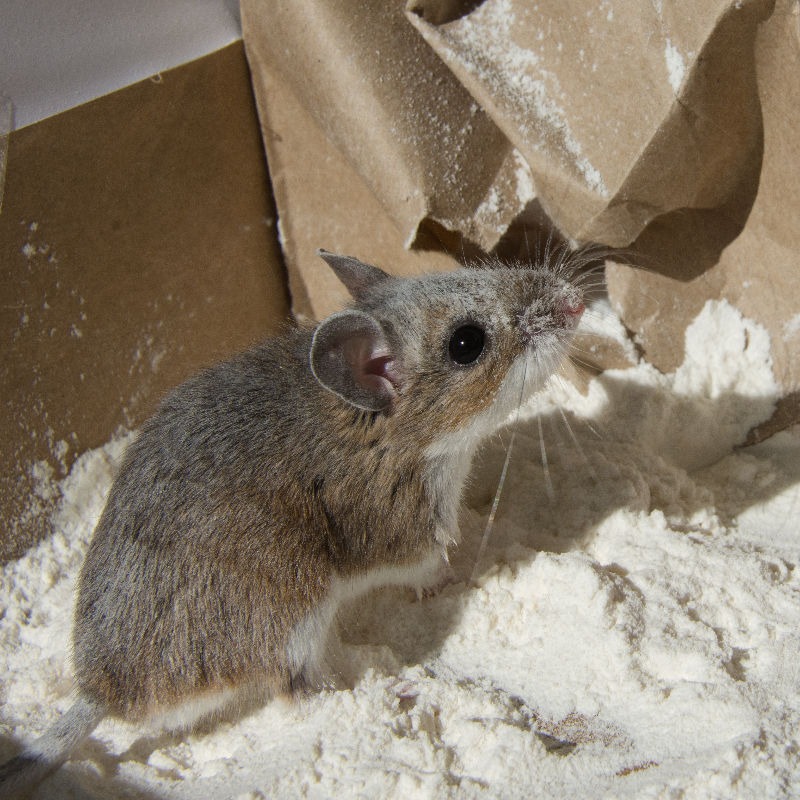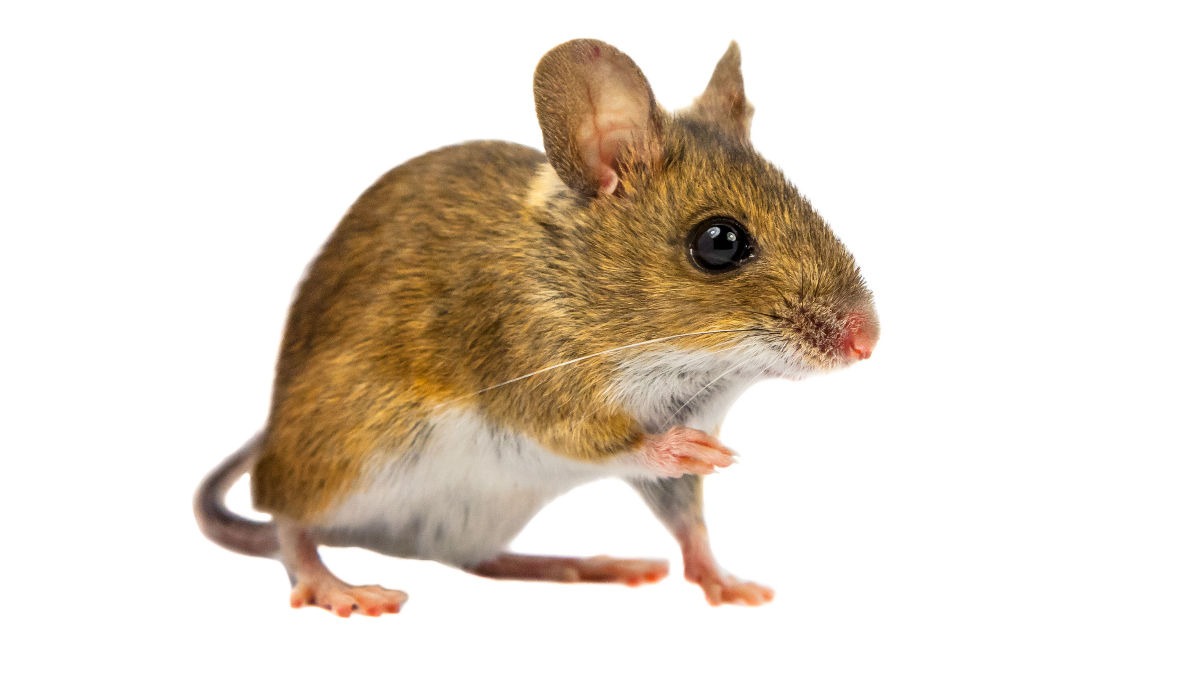You make it a point never to leave food out on your kitchen counters, you check your baseboards for cracks when you can, and you try to avoid creating junk piles in your home.
In short, you’re doing all you can to keep mice at bay.
Unfortunately, you suspect you have a white-footed mouse in your house.
What are these pesky creatures, what are the signs of an infestation, and why is the presence of a mouse in your home something you need to take seriously?
Read on to find out.
What Are White-Footed Mice?

White-footed mice usually live in more rural areas and suburbs. They’re about five inches long including the tail, they have brown fur on top, and have the tell-tale white feet and underbellies.
White-footed mice are agile swimmers and, unfortunately for home and business-owners, avid climbers. They can give birth to between three and five mice at a time every 45 days. This is all the more reason why you want to get control of an infestation as soon as possible.
Signs of an Infestation
While white-footed mice primarily live in tree holes, within log piles, and in outdoor sheds, they can also quite easily get into your home.
Your home’s crawl spaces, basements, and attics provide the ideal habitat for these mice due to their lack of human activity and damp, dark environments.
Squeaking noises within your walls and baseboards. If you spot mice droppings (they’re small, dark, and have pointy ends). If you smell something somewhat stale in a specific area of your home, you may have a mouse infestation.
The same goes if your pets seem interested in a particular area. If you spot gnaw and scratch marks on walls and furniture, or if you spot mice tracks.
Chewed up food packages, newspapers, and other small materials around your home are often signs that mice are building a nest.
The White-Footed Mouse and Lyme Disease
The reality is that the white-footed mouse isn’t just nasty — it’s also responsible for the spread of Lyme Disease.
While Lyme Disease is spread through a black-legged tick bite, the ticks must become infected themselves. The disease-causing Borrelia burgdorferi bacteria is what is needed in order to transmit Lyme. White-footed mice are one of the largest carriers of this bacteria — and they’re among the animals that ticks feed off of the most.
Once ticks get this bacteria into their system just one tiny tick bite has a strong chance of infecting you with Lyme Disease. Here is another great resource for Lyme Disease: Prevention, Identification, and Treatment Options.
You absolutely don’t want to be sharing a space with an animal capable of spreading and transmitting a disease that infects over 300,000 people every year.
Have You Had a White-Footed Mouse or Other Rodent Problem?
Have you experienced a white-footed mouse infestation?
Are you concerned that you may have one living in your home now? Do you know someone who is living with Lyme disease?
Comment below to share your story. Keep checking back with our blog. We’ll give more tips on environmentally-friendly way rodent solutions.
NEED HELP?
If you live in Southern Maryland, or Northern Virginia
FIND YOUR SOLUTION HERE
People, Pet & Pollinator Safe! Pest control for people who care.

